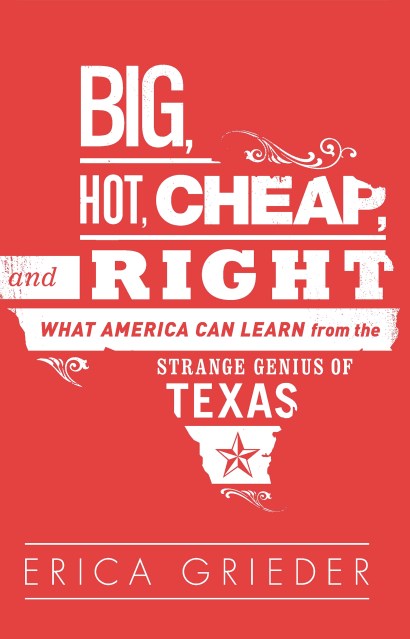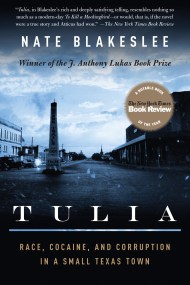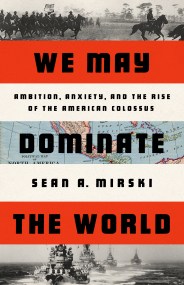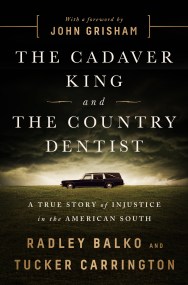By clicking “Accept,” you agree to the use of cookies and similar technologies on your device as set forth in our Cookie Policy and our Privacy Policy. Please note that certain cookies are essential for this website to function properly and do not require user consent to be deployed.
Big, Hot, Cheap, and Right
What America Can Learn from the Strange Genius of Texas
Contributors
Formats and Prices
- On Sale
- Apr 9, 2013
- Page Count
- 288 pages
- Publisher
- PublicAffairs
- ISBN-13
- 9781610391931
Price
$9.99Price
$12.99 CADFormat
Format:
- ebook $9.99 $12.99 CAD
- Trade Paperback $21.99 $28.99 CAD
This item is a preorder. Your payment method will be charged immediately, and the product is expected to ship on or around April 9, 2013. This date is subject to change due to shipping delays beyond our control.
Buy from Other Retailers:
-
Houston Chronicle
“Readable and often amusing… For those of us who didn't grow up here and study Texas history, ‘Big, Hot, Cheap, and Right' is a brief but perceptive introduction to the state's colorful past and fascinating characters.”
San Antonio Express-News
“Grieder delves into Texas' motley past, looks with humor and insight at where we are today, and makes some interesting predictions about our future…. the depth of research, objectivity and philosophical underpinnings of Grieder's writing make ‘Big, Hot, Cheap, and Right' a dang good read for native Texans, and for those of us who got here as fast as we could.”
Austin American-Statesman
“Pacey, colorful, humorous and cutting… The book is a commendable achievement. Some people are going to be very annoyed that they didn't write it….Neither apology nor sonnet, the book's treatment of Texas is robustly moderate.” -
Mother Jones
“You know that college friend, the big, boisterous, obstinate one who was always up to party, quick to fight, and said the most regrettable things, and embarrassed you—but for some reason you just couldn't drop? Well, if Texas were a person, it would be that guy. In this folksy read, Texas Monthly senior editor Erica Grieder explores her home state and its idiosyncrasies, from its fiercely independent streak to its zany characters to its deep distrust of government. While the ‘Texas Model' – low taxes, low services—isn't perfect, Grieder argues that the state remains an economic powerhouse with low unemployment. And if the rest of the country would quit rolling its eyes, it might just learn a thing or two.”
National Review
“Grieder is…a native of San Antonio, and comes at the question of Texas with an insider's perspective that Collins's jokey, stereotype-obsessed book sorely lacked. She knows enough about the state to argue, convincingly, that the rest of America ignores Texas at its peril…Grieder is among those who see that Texas, for all its faults and contradictions, is not an outlier but a zealous inheritor of the American ideal and a grateful son of the Union, and that its dogged pursuit of prosperity might be blazing a path forward for the rest of the country.” -
Publishers Weekly
“Journalist Grieder pens a primer on Texas that is serious and lighthearted in turn. She might as well have referred to the ‘strange genesis' of Texas in her subtitle, as she runs through historical highlights and lowlights from the state's beginnings to explain its present. Grieder's account includes notably bizarre episodes, including the 1951 election in which both the governor and the state attorney general ran on both Democratic and Republican tickets, with the Democratic incarnations of each pulling easy victories…. Anyone curious about or proud of Texas will find something of interest, as will readers of current politics.”
Kirkus Reviews
“In this brisk and sassy counterweight to recent book-length complaints about Texas, Grieder challenges common prejudices about the state and insists that Texas is a better place than people expect… [Grieder] delivers an extensive, perceptive analysis of the state's politics—how it turned Republican in the 1990s and the prospects for a growing Hispanic population to bring it back into the Democratic column…. Due to the fact that Texas is thriving while much of America struggles, it might be wise to consider what Texas is doing right.”
-
Texas Observer
“An astute observer of this state's contradictions, and she avoids the caricature and cliché that plague so many books about Texas by non-Texans. Her forays into Texas history to explain the state's myriad oddities are useful.”
American Spectator
“A splendid book about the rich history and the social, political, and economic strengths and weaknesses of the Lone Star State, where the essentials of the American Dream are still taken seriously.”
Weekly Standard
“Grieder knocks down many of the liberal complaints about the Texas boom.”
Fort Worth Star-Telegram
“[Grieder] uses a journalist's objective eye to offer a primer on the Lone Star State, from its larger-than-life beginnings to what's right with it today: strong economy, job creator extraordinaire, forward-thinking energy policies (it's not all about the oil), an immigration policy that doesn't alienate Latino voters, and population growth.”
Geoff Berg, KPFT Houston's “Partisan Gridlock”
“A terrific read. If you want to understand anything about Texas—modern Texas or historic Texas—you can't unless you read this book. It is just absolutely terrific.” -
Chris Hayes, MSNBC host and author of Twilight of the Elites
“Thirty years from now there's a good chance that most of America will look like Texas and somehow, improbably, using some strange dark prose magic, Erica Grieder has managed to convince me that might actually not be so bad. Written with verve and nuance, this is a fascinating, provocative read. If there were a book like this for each state I'd read every one.”
Bill Bishop, co-author of The Big Sort: Why The Clustering of Like-Minded America is Tearing Us Apart
“Texas isn't the uninhabitable right wing bully East Coast howlers imagine and it's not the open range paradise described by free market myth-makers. Erica Grieder describes the state as it is — a place shaped (and misshapen) by its past and by the entirely human characters who live there. She is a sure-footed guide, pointing out what is to be admired and warning when we had best watch our step.” -
Bryan Burrough, New York Times
“Ms. Grieder's is the rare book that takes stock of the Texas model without ridiculing many of its traditions and politicians…This is a good book, and Ms. Grieder's clear, vivid writing makes it downable in a single afternoon…. This is a promising debut from a promising young author.”
The New Yorker
“[A] lively and wide-ranging book…Her account is equal parts history, apologia, and reportage, and explains everything from why Rick Perry wasn't really advocating for secession to how the repressiveness of Reconstruction in Texas sowed the seeds of the state's aversion to big government.”
Wall Street Journal
“‘Big, Hot, Cheap, and Right' mixes equal parts history, political reporting, back-of-the-envelope economics and cultural commentary. For those who have never enjoyed a plate of Kreuz's barbecue, toured the Alamo or attended the annual Sweetwater Rattlesnake Roundup, Ms. Grieder's thumbnail sketch of Texana will make for an entertaining introduction. But most revealing may be the way she connects the state's current boom with its unique history… a well-timed plea for the rest of the country to wake up and learn from its example.”
Newsletter Signup
By clicking ‘Sign Up,’ I acknowledge that I have read and agree to Hachette Book Group’s Privacy Policy and Terms of Use






